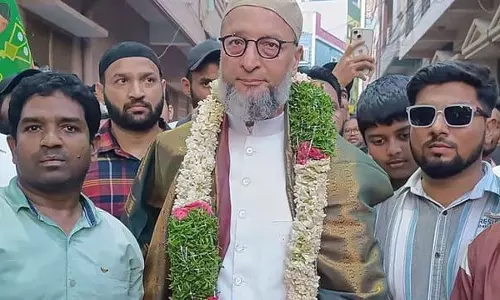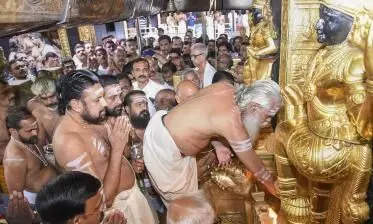
Kerala HC upholds reservation of Malayala Brahmins for Sabarimala priesthood
text_fieldsThe petition that argued discrimination amounted to untouchability in inviting applications only from the Malayala Brahmin community for the post of Sabarimala Ayyappa temple priest by the Kerala government has been dismissed by the Kerala High Court.
However, a Division Bench comprising Justice Anil K Narendran and Justice PG Ajithkumar ruled that the argument claiming that the reservation practices amounted to untouchability and violated constitutional principles does not violate Article 17 of the Constitution.
The court underscored that the right protected under Article 25(2)(b) of the Constitution pertains specifically to the right to enter the temple for worship and does not extend to the performance of certain services reserved for archakas (priests).
The court further highlighted that it is within the domain of the Travancore Devaswom Board to ensure the continuity of traditional rites and ceremonies according to prevailing practices. While the petitioners had contested the state's authority to establish criteria based on caste for such positions, the court upheld the Board's prerogative in maintaining the sanctity and customs of the temples under its jurisdiction.
The Travancore Devaswom Board, responsible for overseeing various temples in the southern districts of Kerala, including the renowned Sabarimala and Malikapuram temples, appoints the chief priest ahead of the annual pilgrimage season, which commences in November.
This ruling comes amid ongoing debates surrounding temple administration and the preservation of cultural practices, particularly in the context of caste-based reservations within religious institutions.























